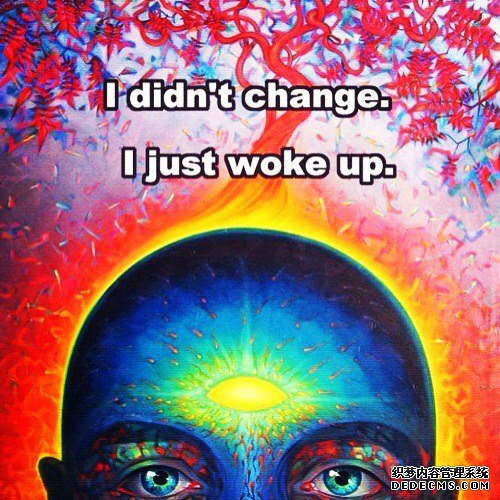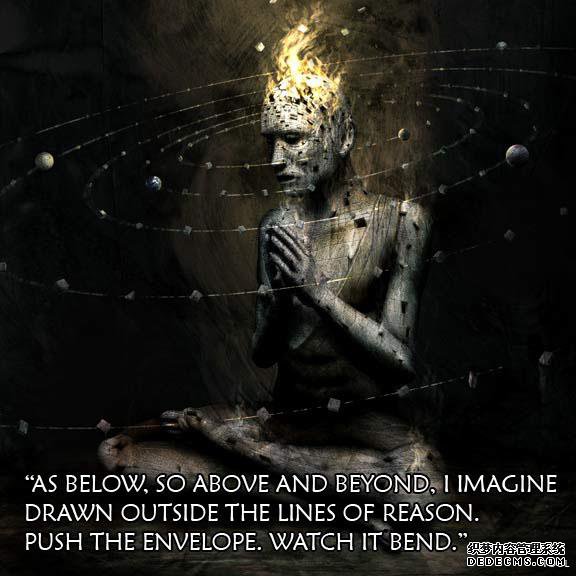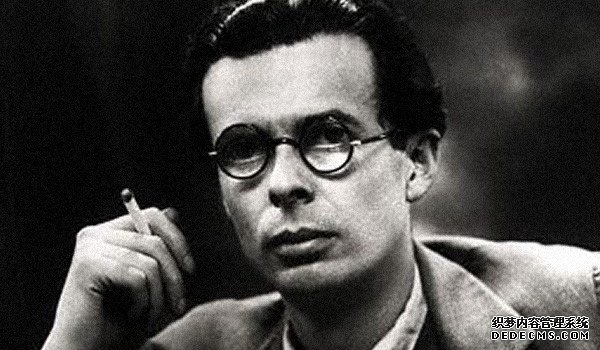您正在浏览:主页 > 传奇网页游戏 > Aldous Leonard 三国类网页游戏 claims that most human beings have an
作者:网页游戏公益服 来源:http://www.banruo.net 时间:2019-01-15 14:41

"The
unfortunate one is he who averts his head from this door.
For he will
not find another one." - Saadi of Shiraz
"If
the Doors of
Perception were cleansed,
everything would appear to man as it is,
infinite."
William Blake
"Whenever
the Secrets of
Perception are taught to anyone
His lips are sewn against speaking of
the Consciousness." - Rumi
"You are
afraid to open the door?
I too was afraid,
since we had
that God is terrible.
Christ taught: God is compassion.
But you should know that compassion
is also terrible."
Carl Gustav Jung
have an almost
infinite capacity for taking things for granted.
do not cease to exist because they
are ignored.
Words
the on which we string
our experiences.
Perhaps the most valuable result of education is the
ability to make yourself do the thing you have to do, when it ought to be done,
whether you like it or not.
Great is , but still greater, from a practical
point of view, is about
truth.
By simply not mentioning certain subjects totalitarian
propagandists have influenced
opinion much more effectively than they could have by the most eloquent
denunciations.
There will be,
in the next generation or
so, a pharmacological
method of making people adore their
, producing dictatorship
without tears, producing a category of for entire
societies so that people will in fact have their freedom taken away from them
but will rather
it.
Aldous Leonard 三国类网页游戏, Prophecies

has a position among
drugs of unique distinction.
Administered in suitable doses it changes
the quality of consciousness more profoundly and yet is less toxic than any
other substance in the pharmacologist's repertory.
A
would take
mescalin for the light it
might throw on such ancient, unsolved riddles as the place of
in nature and the
relationship between brain and .
There is a similarity, in chemical composition, between
mescalin and adrenalin.
Further revealed that
lysergic acid, an extremely potent derived from
, has a structural biochemical
relationship to the others.
Then came the discovery that adrenochrome,
which is a of the
decomposition of adrenalin, can produce many of the symptoms observed in
mescalin intoxication.
Adrenochrome occurs spontaneously in the
human body. Each one of us is capable of manufacturing this chemical, minute
doses of which are known to cause profound changes in consciousness.
Thus it came about that, one bright May
, I swallowed four-tenths
of a gram of mescalin
dissolved in half a glass of water and sat down to wait for the results.
We together, we act on, and react to,
one another; but always and in all circumstances we are by ourselves.
By its very nature every is doomed to
and
in
.
, feelings, insights,
- all these are private and,
except through symbols and at second hand, incommunicable.
We can pool
information about experiences, but never the experiences themselves.
The mind is its own place, and the places inhabited by the insane and
the exceptionally gifted are different from the places where ordinary men and
women , that there is little or
no common ground of to serve
as a basis for understanding. Words are uttered, but fail to
.
The things and events to which the symbols refer belong to mutually
exclusive realms of experience.
The change which actually took place in
reality was in no way revolutionary. Half an hour after swallowing the
mescalin became aware of a slow dance of golden lights. A little
later there were sumptuous red surfaces swelling and expanding from bright
nodes of energy that vibrated with a continuously changing, patterned life.
There is an inside to experience as well as an outside, closing of my eyes
revealed a complex of gray structures, within which pale bluish spheres kept
emerging into intense solidity and, having emerged, would slide noiselessly
upwards, out of sight. The other to which
mescalin admitted me was not
the reality of visions; it out
there, in what I could see with my eyes open.

took the
mescalin at eleven. An hour
and a half later, I was sitting in my study, looking intently at a small glass
vase. The vase contained only three flowers-a full-blown Belie of Portugal
rose, shell pink with a hint at every petal's base of a hotter, flamier hue; a
large magenta and cream-colored carnation; and, pale purple at the end of its
broken stalk, the bold heraldic blossom of an iris. Fortuitous and provisional,
the little nosegay broke all the rules of traditional good
. At breakfast that
I had been struck by the
lively dissonance of its colors. But that was no longer the point. I was not
looking now at an unusual flower arrangement.
I was seeing what Adam had seen on
the morning of his creation, the , moment by moment, of naked
existence.
Istigkeit—wasn't that the word
liked to use? "Is-ness."
A transience that is
, a
perpetual perishing that is at the same time
being, a bundle of minute, unique
particulars in which, by some unspeakable and yet, is to be seen the divine source
of all existence. The really important fact was that spatial relationships had
ceased to matter very much and that my mind was perceiving reality in terms of
other than spatial categories.
The mind
in terms of
intensity of existence, profundity of significance, relationships within a
pattern. The is
primarily concerned, not with measures and locations, but with being and
meaning.
My actual experience had been, was
still, of an indefinite duration or alternatively of a perpetual present made
up of one continually changing .
I was looking at
my furniture, not as the utilitarian who has to sit on chairs, to write at
desks and tables, and not as the cameraman or
recorder, but as
the aesthete whose concern is only
with forms and their relationships within the field of vision. But as I looked,
this
, Cubist's eye view gave
place to what I can only describe as the sacramental vision of reality.
Reflecting on my experience, I find myself agreeing with the eminent
Cambridge , Dr. C.
D. Broad, "that we should do well to consider much more seriously than we have
hitherto been inclined to do the type of theory which Bergson put forward in
connection with and sense
. The
suggestion is that the function of
,
and
sense organs is in the main
eliminative and not . Each individual is
at each moment capable of all that has ever
happened to him. The function of the brain and
is
to us from being overwhelmed
and by this
mass of largely useless and irrelevant
information, by shutting out most of what we sense or remember at any
moment, and leaving only that very small and special selection which is likely
to be practically useful."
What comes out at the other end is a measly
trickle of the category of consciousness which will help us to stay
on the surface of the Earth.
To formulate and express the contents of
this reduced awareness, man has invented
and endlessly elaborated symbol systems and implicit
which we call
.
Every individual is at
once the beneficiary and the victim of the linguistic tradition into which he
has been born - the beneficiary inasmuch as language gives access to the
accumulated records of other people's
, the victim in so
far as it confirms in him the belief that reduced awareness is the only
awareness and as it bedevils his sense of reality, so that he is all too apt to
take his concepts for data,
his words for actual
things in reality.
That which, in the language of religion, is
called "" is the universe
of reduced awareness, expressed, and, as it were, petrified by
language.
Most humans, most of the time, know only what comes through
reduced awareness consecrated as genuinely reality by the local culture.
Certain individuals, however, seem to be born with a bypass that circumvents
the reduction of awareness. In others temporary bypasses may be acquired
, as the result
of deliberate "spiritual exercises" or by means of drugs. Through these
permanent or temporary bypasses there flows awareness which is more than, and
above all some different from, the carefully selected utilitarian material
which our narrowed, individual minds regard as a complete, or at least
sufficient, picture of .


Some people
discover a reality of visionary beauty. To others is revealed the
, the infinite value and
meaningfulness of naked existence, of the given, unconceptualized event. In the
final stage of egolessness there is knowledge that
all is one and one is
all. This is as near as a finite mind can ever come to perceiving the
universe.
mescalin
raises all colors to a higher power and makes the percipient aware of
innumerable fine shades of difference, to which, at ordinary times, he is
completely . All manner of
wealth, a gift, beyond price, of a new direct insight into the very nature of
things, together with a more modest treasure of understanding reality.
Such emblems are sources of
about
the nature of things, and this true
knowledge may serve to prepare the mind which accepts it for immediate
insights on its own account.
However expressive, symbols can never
be the things they stand for.
For the
moment, mescalin had delivered
me "the world of selves, of time, of moral
and utilitarian
considerations, the world of , of cocksureness, of
overvalued words and idolatrously worshiped notions.
Successfully or unsuccessfully, we all
overact the part of our favorite character in fiction.
can never solve that
problem; it can only pose it, , for those to whom it had
never before presented itself.
When we feel ourselves to be a part of
the , when "the sea flows in
our veins... and the are our jewels,"
when all things are as infinite and
holy, what motive can we have for covetousness or
, for the pursuit
of power or the drearier forms of pleasure?
As a rule the
mescalin taker discovers an
inner world as manifest as reality, as
" and holy," as that
transfigured outer world which I had seen with my your eyes open.
Most
visualizers are transformed by
mescalin into visionaires.
Some of them, and they are perhaps more numerous than is generally supposed,
require no ; they
are visionaires all the time. They belong to that
archetypal
, where men have always found
the raw materials of myth and religion. They have engaged in a retreat from the
outward reality into the personal
, into a
more squalid and more tightly
closed than even the reality of personality.
The
totality is present even in the broken pieces.
More clearly present,
perhaps, than in a completely coherent work.
was willing; and though
my body seemed to have
dissociated itself almost completely from my mind - or, to be more
accurate, though my awareness of the transfigured outer world was
no longer accompanied by an
awareness of my physical organism - I found myself able to get up, open the
French window and walk out with only a minimum of
.

It was
odd, of course, to feel that "" was not the same as
these arms and legs "out there," as this wholly objective trunk and neck and
even head. It was odd; but one soon got used to it. And anyhow the body seemed
perfectly well able to look after itself. In reality, of course, it always does
look after itself. All that the
can do is to formulate wishes,
which are then carried out by forces which it controls very little and
understands not at all. When it does anything more - when it tries too hard,
for example, when it worries, when it becomes apprehensive about the future -
it lowers the effectiveness of those forces and may even cause the devitalized
body to fall ill. In my present state, awareness was not referred to as
; it was, so to speak, on its
own. This meant that the physiological
intelligence controlling the body was also on its own. For the moment that
interfering neurotic who, in waking hours, tries to run the show, was blessedly
out of the way.
Where the
fell on the canvas
upholstery, stripes of a deep but glowing
alternated with
stripes of an incandescence so intensely bright that it was hard to believe
that they could be made of anything but blue fire. I was so completely absorbed
in looking, so thunderstruck by what I actually saw, that I could not be aware
of anything else. Garden furniture, laths, sunlight,
- these were no more than
names and notions, mere verbalizations, for utilitarian or
purposes, after
the event. The event was this succession of azure furnace doors separated by
gulfs of unfathomable gentian. It was inexpressibly wonderful, wonderful to the
point, almost, of being terrifying.

Suddenly I had an inkling of what it must feel like
to be insane. Most takers of
mescalin experience only the
part of
.
mescalin brings hell only to
those who have had a recent case of jaundice, or who suffer from periodical
or a
chronic . If, like the other
drug of remotely comparable power, were notoriously toxic,
the taking of it would be enough, of itself, to cause
. But the reasonably healthy
individual knows in advance that, so far as he is concerned,
mescalin is completely
innocuous, that its effects will pass off after eight or ten hours, leaving no
hangover and consequently no craving for a of the dose. Fortified by this
knowledge, he embarks upon the experiment without fear, in other words, without
any disposition to convert an unprecedentedly strange and other than normal
human experience into something appalling, something actually
diabolical.

I found myself all at once on the brink of
panic. This, I suddenly felt, was going too far. Too
far, even though going into intenser beauty, deeper significance. The fear,
in retrospect, was of being
overwhelmed, of disintegrating under a pressure of reality greater than a mind,
accustomed to living most of the time in a cosy world of symbols, could
possibly bear. The literature of religious experience abounds in references to
the pains and terrors overwhelming those who have come, too suddenly, face to
face with a manifestation of the .
In
theological language, this fear is due to the incompatibility between man's
and the divine purity,
between man's and the
.
The
Tibetan Book of the Dead I opened at random. "O nobly born, let not thy
mind be distracted." That was the problem—to remain
undistracted.
Undistracted by the of past sins, by imagined
pleasure, by the bitter
aftertaste of old wrongs
and humiliations, by all the fears and hates and cravings that ordinarily
eclipse the light.
remains
unshakably itself and is of the
as the
.
A moment
later a clump of Red Hot Pokers, in full bloom, exploded into my field of
vision. So passionately , they
seemed to be standing on the very brink of utterance, the
strained upwards
into the blue. I looked down at the leaves and discovered a cavernous intricacy
of the most delicate green lights and , pulsing with indecipherable
.
Roses :
The
are easy to paint,
The leaves difficult.
Shiki's haiku expresses, by indirection,
exactly what I then felt—the excessive, the too
glory of the flowers, as contrasted
with the subtler of their
foliage. The effects of the were already on the
decline: but the in
the gardens still trembled on the brink of being
, the pepper trees and
carobs along the side streets still manifestly belonged to some sacred grove.
And then, abruptly, we were at an intersection, waiting to cross Sunset
Boulevard. Before us the cars were rolling by in a steady stream—thousands
of them, all bright and shiny like an advertiser's dream and each more
than the last.
And all at once I saw what Guardi had seen and had so often rendered in
his paintings—a stucco wall with a slanting across it, blank but
unforgettably beautiful, empty but charged with all the meaning and the mystery
of existence. The and was
gone again within a fraction of a second.
An hour later, I had returned
to that reassuring but profoundly unsatisfactory state known as "being in one's
right mind."
That humanity at large will ever
be able to dispense with artificial
paradises seems very unlikely.
Most men and women lead lives at the
worst so painful, at the best so monotonous, poor and limited that the urge to
escape, the longing to
themselves if only for a few moments, is and has always been one of the
principal appetites of the soul.
All the vegetable sedatives and
narcotics, all the euphorics that grow on trees, the hallucinogens that ripen
in berries or can be squeezed from roots—all, without exception, have been
known and systematically used by human beings from time
immemorial.
Most of these modifiers of consciousness cannot now be
taken except under doctor's orders, or else illegally and at considerable risk.
For unrestricted use America has permitted only
and
.
All the other
are dope, and their
unauthorized takers are "".

To most people,
mescalin is almost completely
innocuous. Unlike alcohol, it does not drive the taker into the category of
uninhibited action which results in brawls, crimes of violence and traffic
accidents. A man under the of
mescalin quietly goes about
his own business. Moreover, the business he is about is an experience of the
most
category, which does not have to be paid for by a compensatory hangover. Of the
long-range of regular
mescalin taking we know very
little. The Indians who consume peyote buttons do not seem to be physically or
morally degraded by the habit.
The urge to
selfhood is, as I
have said, a principal appetite of the soul. When, for whatever reason, men and
women fail to themselves by means of worship,
good works and spiritual exercises, they are apt to resort to
chemical surrogates -
alcohol and "" in the
modern , alcohol and
in the East, hashish in the
Mohammedan world, alcohol and marijuana in , alcohol and coca in the
Andes, alcohol and the barbiturates in the more up-to-date regions of
.
In Poisons
Sacrés, Ivresses Divines Philippe de Felice has written at length
and with a wealth of documentation on the immemorial connection between
religion and the taking of drugs. Here, in summary or in direct quotation, are
his conclusions. The employment for religious purposes of toxic substances is
widespread. The practices studied in this volume can be observed in every
region of the Earth, among primitives no less than among those who have reached
a high pitch of . We are therefore
dealing not with exceptional facts, which might justifiably be overlooked, but
with a general and, in the widest sense of the word, a
, the category of
which cannot be
disregarded by anyone who is trying to discover what religion is, and what are
the deep needs which it must satisfy."
Christianity and mescalin
are compatible.
I am suggesting that the
mescalin experience is what
call "a gratuitous grace," not
necessary a path to
but potentially helpful and to be accepted
, if made available. To
be shaken out of the ruts of ordinary
, to be shown
for a few hours the outer and the
inner
, not as they appear to an
animal obsessed with
or to a human being
obsessed with words and notions, but
as they are , directly
and unconditionally.
This is an experience of inestimable value
to everyone and especially to the intellectual.
We can never
dispense with language and the other symbol
; for it is by means of
them, and only by their means, that we have raised ourselves above the brutes,
to the level of human
beings.
Unfortunately we can as easily become the victims as well
as the beneficiaries of these . We must
how to
words effectively; but at
the same time we must preserve and, if necessary, intensify our ability to look
at reality directly and not through that half opaque medium of concepts, which
distorts every given fact into the all too
familiar likeness of some generic label or explanatory
abstraction.
This has been demonstrated by many tribes of
, from Texas to as far
north as Wisconsin. Among these Native
American tribes are to be found groups affiliated with the
church, a sect whose
principal rite is a category of early Christian
, or compassion feast,
where slices of peyote take the place of
the sacramental bread and
wine. These regard
the cactus as God's special gift to the , and equate its effects
with the workings of .
Professor J. S. Slotkin, one of the very few white men ever to have
participated in the rites of a peyotist congregation, says of his fellow
worshipers that they are "certainly not stupefied or drunk.... They never get
out of rhythm or fumble their words, as a drunken or stupefied man would do....
They are all quiet, courteous and considerate of one another. I have never been
in any white man's house of worship where there is either so much religious
feeling or decorum."
For these
, religious experience is
something more direct and illuminating, more
, less the homemade
of the superficial,
mind. Sometimes
they see visions, which may be of . Sometimes they
the voice of the Great Spirit. At
times they become aware of the presence of God and of those personal
shortcomings which must be corrected if they are to do God's Will. The
practical consequences of these chemical openings of doors into reality seem to
be wholly good. Dr. Slotkin reports that habitual peyotists are on the
more industrious, more temperate (many
of them abstain altogether from alcohol), more peaceable than non-peyotists. A
with such satisfactory fruits
cannot be condemned out of hand as evil.
In sacramentalizing the use
of peyote, the Indians of the Native
American Church have done something which is at once psychologically sound
and historically respectable. Here the
the soul knows itself as
unconditioned and of like nature with the divine, hence the
Church. In it two great
appetites of the soul— the urge to independence and self-determination and
the urge to are fused
with, and in the
light of, a third, the urge to worship, to justify the ways of God to man, to
explain the by means of a
coherent .
or
, liberal or
, all our education is
predominantly verbal and therefore fails to accomplish what it is supposed to
do. Instead of transforming children
into fully developed adults, it turns out students of the natural sciences who
are completely unaware of nature as the primary fact of experience, it inflicts
upon the Earth students of the who know nothing of
, their own or anyone else's.
The non-verbal , the art of
being directly aware of the given reality of our existence, is almost
completely ignored.
reasoning is something we could not, as a species or as
, possibly do without. But
neither, if we are to remain sane, can we possibly do without direct
, the more
unsystematic the better, of the inner and
outer realities into which we have been born. This given reality is an infinite
which passes all understanding and yet admits of being directly and in some
sort totally . It is a
belonging to another order
than the human, and yet it may be present to us as a felt immanence, an
experienced participation. To be enlightened is to be aware, always, of total
reality in its immanent otherness, to be
of and yet to remain in
a condition to as an
animal, to think and feel as a human being, to resort whenever
to
. Our
is to discover that we have
always been where we ought to be.
Near the end of his life
Thomas Aquinas experienced
.
Thereafter he refused to go back to work on his unfinished
.
The man who comes back through
the Doors of Perception will never be quite the same as the man who went
out.
He will be wiser but less cocksure,
but less
, humbler in
acknowledging his
yet better equipped to understand the relationship of words to things and to
apply
to
in an attempt to
.
- adapted
from The Doors of , Aldous
Leonard 三国类网页游戏

Aldous Leonard
三国类网页游戏 examined and critiqued social morés,
, and possible
misapplications of science in human life.
Aldous 三国类网页游戏 wrote on the
dehumanising aspects of progress including
Brave New World.
Aldous 三国类网页游戏 examined the
that
follows from
:
and
.
While Aldous 三国类网页游戏 was noted for
, only
considerably later, some say under the
of such friends
as D.H. Lawrence, did he
heartily embrace feelings as matters of importance in his evolving personal
philosophy and literary
expression. Aldous 三国类网页游戏, immigrated to America, but was denied
citizenship as he refused to ascribe his
to religious
beliefs.

<<上一篇:游侠早报:耐玩的网页游戏原罪2将推完全版 英雄联盟新英雄登场 >>
<<下一篇:中国自信应考WTO:网页游戏公益服排行榜国际篮球赛怎能为中国专设篮筐 >>